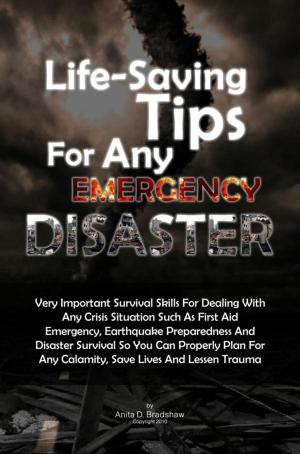Achieve A Healthy And Strong Heart
Learn The Secrets On How To Prevent Heart Attack, How To Reduce High Blood Pressure, Plus, Discover The Types Of Heart Disease, Heart Exercises And Excellent Cholesterol Plan!
Nonfiction, Health & Well Being, Health, Healthy Living| Author: | John A. Williams | ISBN: | 1230000017274 |
| Publisher: | KMS Publishing | Publication: | September 12, 2012 |
| Imprint: | Language: | English |
| Author: | John A. Williams |
| ISBN: | 1230000017274 |
| Publisher: | KMS Publishing |
| Publication: | September 12, 2012 |
| Imprint: | |
| Language: | English |
A heart attack is known as a myocardial infarction. This occurs when the heart muscle is damaged or does not receive enough oxygen. Many cardiac related problems occur due to blockages in arteries that carry purified blood away from the heart to different parts of the body. Another cause is the formation of blood clots.
Very often, it is quite difficult to differentiate between a heart attack and heartburn. The common signs of a heart attack are a tightness, pain, or discomfort in the chest. Sweating, nausea, and vomiting that are accompanied by intense pressure in the chest. A radiating and intense pain in the chest that extends from the chest to the left arm. A shortness of breath for more than a few minutes. If you have any of the above you must consult the doctor or go to the emergency rooms.
If you even think you are having a heart attack you must call for a cardiac care ambulance, and put under your tongue a sorbitrate or chew an aspirin. If you are allergic to aspirin don’t take one. At the hospital care will include rapid thrombolysis, cardiac catheterization, and angioplasty. They will also administer intravenously clot busting medications.
The risk factors for a heart attack include: smoking, diabetes, high levels of cholesterol, hypertension, family history of heart diseases, atherosclerosis, lack of exercise, obesity, and fast foods.
A heart attack is known as a myocardial infarction. This occurs when the heart muscle is damaged or does not receive enough oxygen. Many cardiac related problems occur due to blockages in arteries that carry purified blood away from the heart to different parts of the body. Another cause is the formation of blood clots.
Very often, it is quite difficult to differentiate between a heart attack and heartburn. The common signs of a heart attack are a tightness, pain, or discomfort in the chest. Sweating, nausea, and vomiting that are accompanied by intense pressure in the chest. A radiating and intense pain in the chest that extends from the chest to the left arm. A shortness of breath for more than a few minutes. If you have any of the above you must consult the doctor or go to the emergency rooms.
If you even think you are having a heart attack you must call for a cardiac care ambulance, and put under your tongue a sorbitrate or chew an aspirin. If you are allergic to aspirin don’t take one. At the hospital care will include rapid thrombolysis, cardiac catheterization, and angioplasty. They will also administer intravenously clot busting medications.
The risk factors for a heart attack include: smoking, diabetes, high levels of cholesterol, hypertension, family history of heart diseases, atherosclerosis, lack of exercise, obesity, and fast foods.















